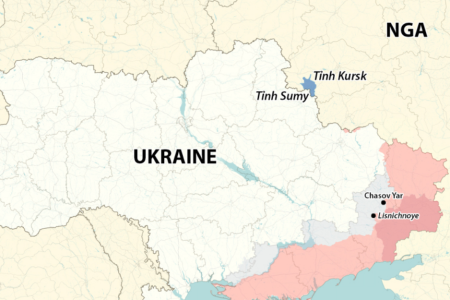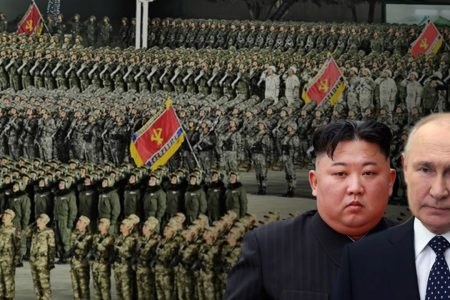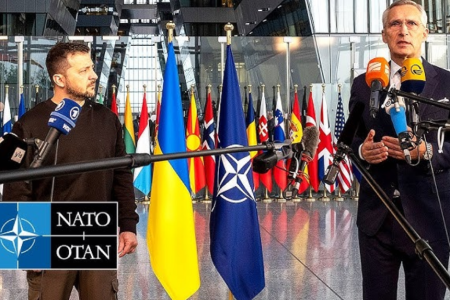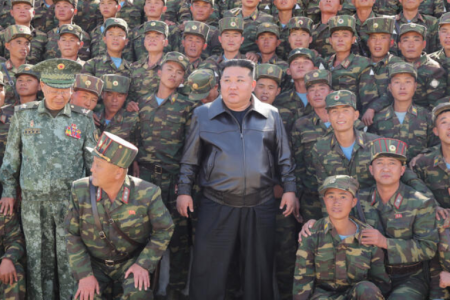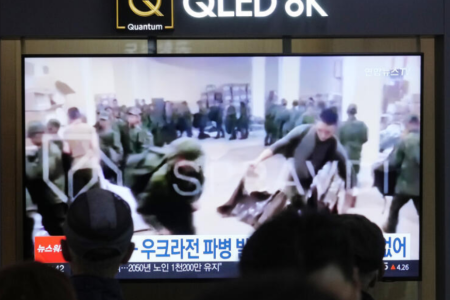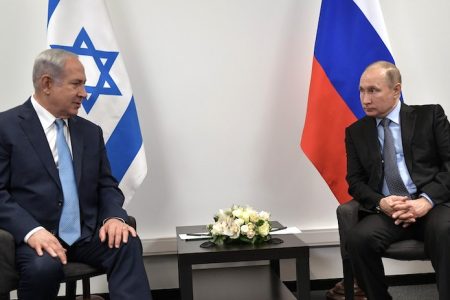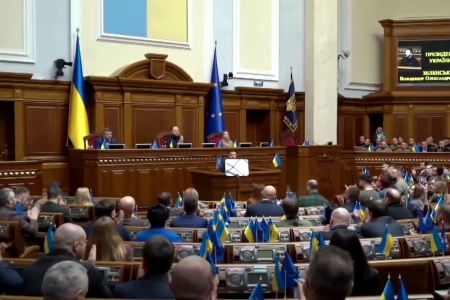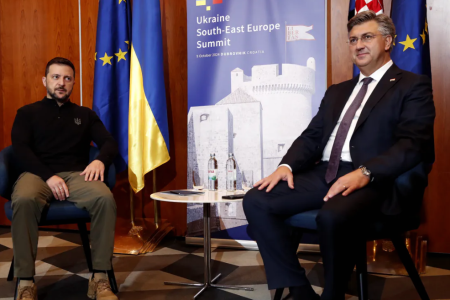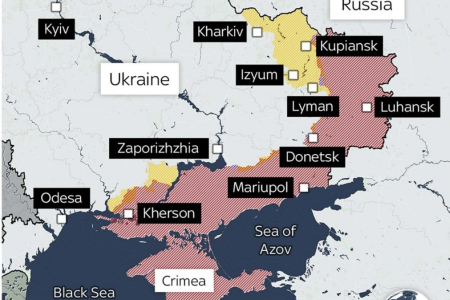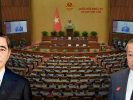Nearly 95% of the legislators of Vietnam’s National Assembly voted in the process of approving the two agreements with the EU: the Free Trade Agreement and the Investment Protection Agreement.
After the Vietnamese parliament completes the procedure for ratifying the above two agreements, the EU-VN Free Trade Agreement (EVFTA) is expected to take effect this summer.
The Vietnamese Government Information Page commented that “EVFTA helps diversify our country’s market so that it does not depend on a limited number of markets, and at the same time acts as a stimulating factors for other partners to strengthen trade-investment relations with Vietnam.”
However, it does not specify which countries or regions these “markets” are.
In a previous interview with VOA, Dr. Nguyen Quang A emphasized that a “very important” point of EVFTA is that thanks to the agreement, Vietnam “can create a balance” between large blocs such as the US, the EU, China, Japan, Korea, etc.
Dr. Quang A noted that trade between Vietnam and China accounts for a large proportion of Vietnam’s total foreign trade.
He said: “If the Chinese economy slows down, it will directly affect the Vietnamese economy and affect the whole world. In order to maintain high growth, I think the Free Trade Agreement between Vietnam and the EU is very important.”
While Vietnam faces a huge trade deficit with China, which hit more than $34 billion in 2019, the EU is Vietnam’s second largest export market, behind only the US. Through EVFTA, Vietnam can access a potential market with a population of over 500 million people, GDP of about 15,000 billion, accounting for 22% of global GDP, the site commented on June 8.
In general, Dr. Quang A foresees with VOA that EVFTA will make Vietnam’s exports “more efficient” and that relations between Vietnam and the EU “will improve” and expressed confidence that the agreement help “create jobs.”
Government Information Page forecast on June 8 that EVFTA will help increase approximately 146,000 jobs per year in Vietnam.
Sharing the news about Vietnam’s parliament approving EVFTA, the Facebook page of the EU delegation in Hanoi said that when it takes effect, EVFTA would bring “immediate positive” impacts to businesses in Vietnam and Europe.
From the first effective date, the tariff reduction will apply to 65% of EU exports to Vietnam and 71% of EU imports from Vietnam, Facebook of the delegation said.
Due to the impact from tax cuts, the Vietnamese side forecasts that the total budget revenue reduction will be “over VND 2.500 trillion.” However, investment and trade activities are expected to be more active, with stronger economic growth, bringing about an increase in domestic revenue “about VND 7 trillion” in the period of 2020-2030, Government Information. set expectations.
EVFTA is expected to help Vietnam’s GDP increase by an average of 2.18 to 3.25% for the first 5 years of implementation, Facebook page of the Vietnamese government said.
From 6th to 10th year, EVFTA may increase Vietnam’s GDP by 4.57-5.3%, and more than 7% to nearly 8% for the 11th to 15th year from now.
Vietnam sees EVFTA as an opportunity to attract more investors from the EU in areas such as manufacturing and processing industries using high technology, clean energy, renewable energy, services and information. The government said.

Regarding the benefits that the agreement will bring to the European bloc, Vietnam forecast that imports from the EU will increase by about 33% in 2025 and nearly 37% in 2030, focusing on a number of commodities such as vehicles and transport equipment, machinery and equipment, phones and electronic components, pharmaceuticals.
The European Parliament passed the EVFTA four months ago, in early February, despite some parliamentary cautions about the threat to employment in the EU, and of human rights and civil society advocacy organizations about the terrible human rights situation in Vietnam.
In order to promote social progress in Vietnam, the EVFTA contains provisions under which Vietnam pledges to pass two bills on abolishing forced labor and allowing freedom of association.
In addition, there is a provision that this trade agreement will be suspended “if there is a violation of human rights.“
However, in the process of reporting on this agreement, VOA found that human rights defenders did not hide their skepticism about the possibility that EVFTA could positively affect the human rights situation, which was considered bad in Vietnam.
Paris-based Reporters Without Borders (RSF) on May 26, 2020 released a statement demanding the release of two independent journalists Nguyen Tuong Thuy and Pham Chi Thanh and urged trade partners with Vietnan to pressure to end this new crackdown.
Blogger Nguyen Tuong Thuy was arrested in Hanoi on Saturday 23 May and taken to to Saigon. Thuy, 68, is a veteran and vice president of the Independent Journalists Association of Vietnam (IJAVN).
Two days earlier, Mr. Pham Chi Thanh (penname Pham Thanh) was also arrested at his home in Hanoi under Article 117 of the Criminal Code and is being detained. “Mr. Pham Thanh is the owner of Ba Dam Xoe’s blog, and has just published a book titled Nguyen Phu Trong: The holder of the mandate of heaven or a great immoral traitor. He is also a member of Vietnam Association of Independent Journalists.

Daniel Bastard, head of Asia-Pacific of RSF, said the arrest of Mr. Nguyen Tuong Thuy and Pham Chi Thanh was a cold water bucket for those who were trying to openly debate in Vietnam. RSF calls on Vietnam’s trade partners, led by the EU and the US to pressure Hanoi to end its crackdown.
Mr. Bastard reiterated that the president of the Independent Journalists Association of Vietnam, Mr. Pham Chi Dung, who had been awarded the title of “Information Hero” by RSF, was arrested in November 2019.
Vietnam currently ranks 175/180 in RSF’s list of world free press.
Europeans told VOA that the majority of EU MPs voted for these two agreements on February 12 because they were ‘not knowledgeable enough’ to deal with Vietnam’s “tactics,” but there were also confident that with the EU’s close supervision, violations will be reviewed thoroughly.

From Brussels, Belgium, Nguyen Hoang Hai, a Vietnamese-pro-EVFTA, commented to VOA that the vote on 12/02 showed that the EU side “bargained with hands and failed.”
“This agreement will be good for the economy of both sides, but it must be acknowledged that the EU has lost because they could have claimed more than the terms of labor, criminal… but they wrongly assessed Vietnam so they bargained wrong.
“They are not economically unfortunate but their position, when they preach about human rights on the one hand, but actually they do not pay attention.”
Mr. Hoang Hai further commented:
“The vast majority of parliamentarians do not understand Vietnam well, so they just voted for EVFTA recently, which is understandable. The reason is that they have a lot of other documents that are preferred for monitoring and research, while the trade records with Vietnam, European public opinion as well as their voters are also less interested.”
“But I, I’m a pessimist, I think the European Parliament’s understanding of Vietnam is not enough to deal with the tricks of the Vietnamese Government.”

Commenting on the general control mechanism for the implementation of EVFTA by the Vietnam National Assembly and the European Parliament, Mr. Nguyen Hoang Hai said:
“They said there was a very vague mechanism that would use a joint committee between the parliaments of Vietnam and EU to exchange information and monitor each other.
“The idea is like that! But Vietnam’s parliament is controlled by the ruling Communist Party!”
Human rights observers suggest that the EU should set up a specialized human rights office in Vietnam in addition to establishing independent European monitoring groups to monitor human rights violations and visit prisoners of conscience in Viet Nam; support and ensure the presence of independent unions, and hold a Vietnam human rights hearing every 6 months.
Thoibao.de (Translated)



